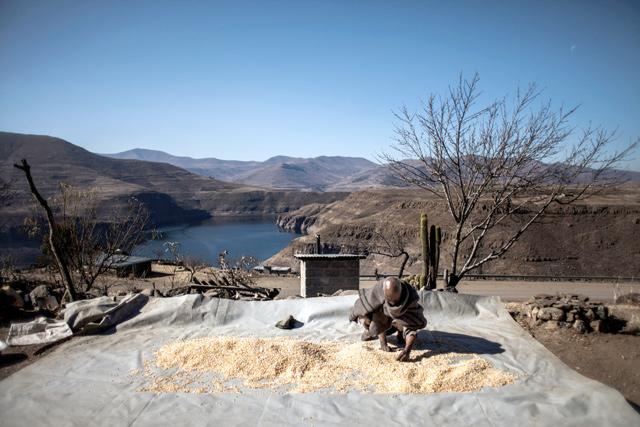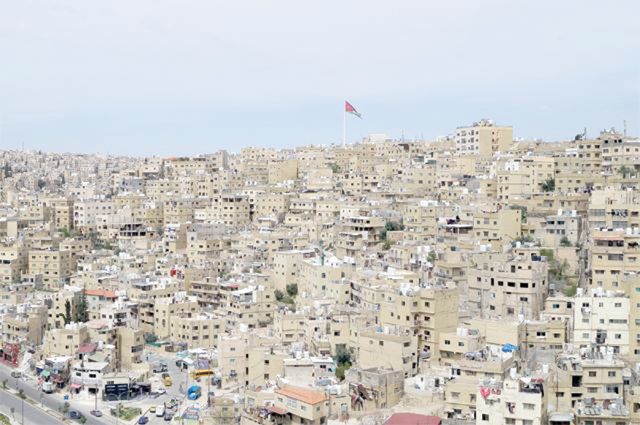You are here
‘Climate change means more fear, less fun for global middle class’
By Reuters - Jan 14,2016 - Last updated at Jan 14,2016
BARCELONA — The erosion of wealth among the world's middle class due to climate change is a threat to economic and social stability which could spur its 1 billion members to push for action on global warming, Swiss bank UBS Group AG said.
In a study of middle-class consumption in 215 cities around the world, UBS analysts found spending priorities were noticeably different in cities most at risk from climate change such as Los Angeles, Tokyo and Shanghai.
In those top-risk cities, the middle class spent between 0.6 and 0.8 per cent more on housing compared to the national average, and less on luxuries, entertainment and durable goods.
The report said middle-class households are already changing their lifestyles in the cities most exposed to hotter temperatures, rising sea levels and extreme weather such as storms and floods.
In places with high risks of climate-related shocks, people spend more on the upkeep of their properties.
And homes may decrease in value if certain places become less appealing to live, eating into wealth, the report added.
Efforts to adapt to changing climate conditions, which remain modest and sporadic among the middle class, can also bring new costs.
In cities that suffer extreme heat, the middle class is increasingly laying out for air conditioning, the report noted.
But some types of adaptation can create "a negative feedback loop", it warned.
For instance, higher demand for air conditioning requires more electricity, which can lead to grid failure and increased planet-warming emissions.
In addition, inadequate infrastructure and health care systems increase the need to rely on emergency government support when disasters strike.
"In our assessment this is likely, even in the richest of countries," the report said.
The largest cities are home to nearly a quarter of the global population and generate around half of global gross domestic product, the report indicated.
Most of the global middle class lives in southeast Asia, the region that has experienced the fastest urban population growth in recent years, it remarked.
But 91 per cent of weather-related losses in Asia are uninsured, it pointed out, compared with 32 per cent in the United States, which had the highest level of insurance penetration in the study sample.
Driver of conflict
The report also said climate-driven population shifts into urban areas have the potential to create and exacerbate conflict, as in Syria.
In the course of five years of drought starting in 2006, Syria lost 85 per cent of its livestock and saw crop production plummet, child malnutrition worsen and the subsequent migration of 1.5 million residents from rural to urban areas.
"These conditions led to protests, which ultimately escalated into civil war," Zurich-based UBS said in a statement.
However, the political and social clout of middle-class populations means their vulnerability to climate change risks should translate into pressure on governments to tackle global warming, the report noted.
"The middle class has two important qualities that make them critically important to the conversation about climate change: substantial assets and political influence," said Paul Donovan, global economist and managing director at UBS Investment Bank.
"If the effects of climate change significantly hurt the middle class, the inevitable reaction should in turn elicit a strong response from policymakers," he added.
Related Articles
PARIS – Longer and more frequent heatwaves, soaring demand for air conditioning, and widespread disease: life in cities would become unbeara
PARIS — Climate change will fundamentally reshape life on Earth in the coming decades, even if humans can tame planet-warming greenhouse gas
AMMAN — Economists are warning that Jordan’s middle class is facing extinction, and is nearly devoid of any classification after dwindling r


















